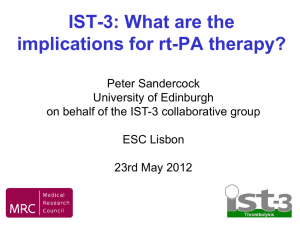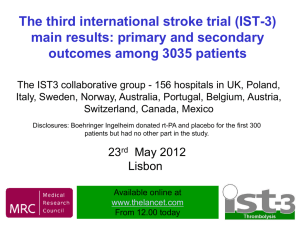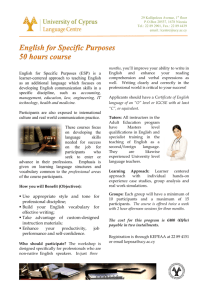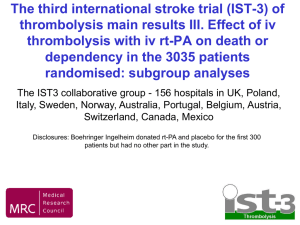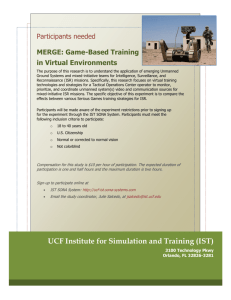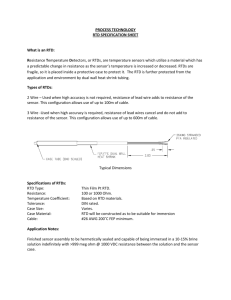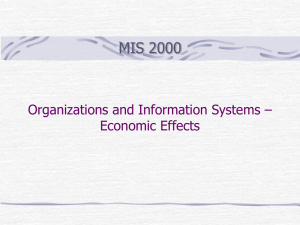Contact Person Details - Department of Computer Science
advertisement
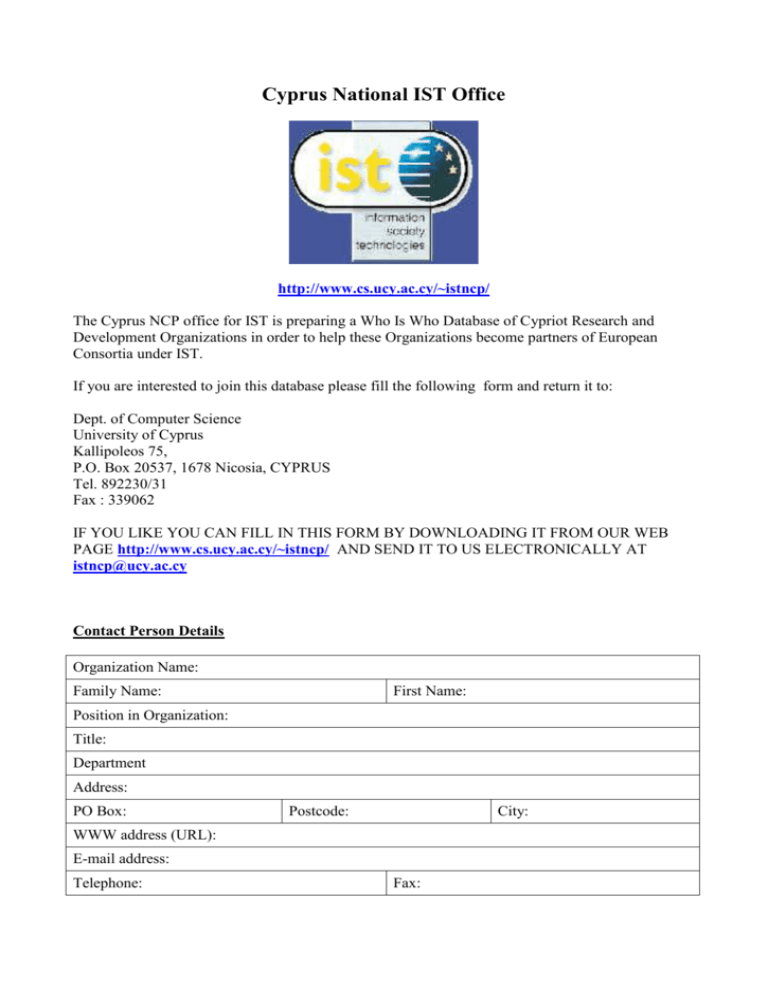
Cyprus National IST Office http://www.cs.ucy.ac.cy/~istncp/ The Cyprus NCP office for IST is preparing a Who Is Who Database of Cypriot Research and Development Organizations in order to help these Organizations become partners of European Consortia under IST. If you are interested to join this database please fill the following form and return it to: Dept. of Computer Science University of Cyprus Kallipoleos 75, P.O. Box 20537, 1678 Nicosia, CYPRUS Tel. 892230/31 Fax : 339062 IF YOU LIKE YOU CAN FILL IN THIS FORM BY DOWNLOADING IT FROM OUR WEB PAGE http://www.cs.ucy.ac.cy/~istncp/ AND SEND IT TO US ELECTRONICALLY AT istncp@ucy.ac.cy Contact Person Details Organization Name: Family Name: First Name: Position in Organization: Title: Department Address: PO Box: Postcode: City: WWW address (URL): E-mail address: Telephone: Fax: Organization Details Organisation name: Department: Address: PO Box: Post Code: City: Organization type: Consultancy Research Education Industry Non-Commercial Technology Transfer Other Organization size: < 10 10-49 50-249 250-500 > 500 employees Brief description of the organization: Turnover: (in £CY) Please enter here at most 5 of the areas from the list below in which your organisation is interested in : Research Areas of the Fifth Framework Programme IST - User-friendly Information Society Please choose the work programme research area(s)/ key action(s) you are interested in: (IST-CPA) (IST-CPA.1) (IST-CPA.2) (IST-CPA.3) (IST-CPA.4) (IST-CPA.5) (IST-CPC) (IST-FET) (IST-FET.O) (IST-FET.P) (IST-FET.P.1) (IST-FET.P.2) (IST-FET.P.3) (IST-KA.I) (IST-K.A.I.1) (IST-KA.I.1.1) (IST-KA.I.2) (IST-KA.I.2.1) (IST-KA.I.2.2) (IST-KA.I.2.3) (IST-KA.I.3) (IST-KA.I.3.1) (IST-KA.I.4) (IST-KA.I.4.1) (IST-KA.I.4.2) (IST-KA.I.5) (IST-KA.I.5.1) (IST-KA.I.5.2) (IST-KA.I.6) (IST-KA.I.6.1) (IST-KA.I.6.2) (IST-KA.I.6.3) (IST-KA.II) (IST-1) (IST-1.1) (IST-1.2) (IST-2) (IST-2.1) (IST-2.2) (IST-2.3) (IST-3) (IST-3.1) (IST-3.2) (IST-3.3) (IST-4) (IST-4.1) (IST-4.2) (IST-4.3) (IST-KA.III) (IST-1) (IST-1.1) (IST-2) (IST-2.1) Cross-programme Actions Integrated applications platforms & services Dependability in services & technologies Design-for-all for an inclusive information society New indicators and statistical methods Geographic Information Cross-programme Clustering & Concertation FUTURE & EMERGING TECHNOLOGIES Open domain Proactive Initiatives Quantum computing & communications Universal information ecosystems Nanotechnology information devices SYSTEMS & SERVICES FOR THE CITIZEN RTD Spanning Key Action I New models for providing services to citizens Health Personal health systems Clinical, biological & imaging systems New generation tele-medicine services Persons with special needs Systems & services for independent living Administrations Administrations in the information society On-line support to democratic processes Environment Environmental monitoring & management Environment risk & emergency management Transport & Tourism Intelligent infrastructure & mobility management Systems for intelligent vehicles Tourism NEW METHODS OF WORK & ELECTRONIC COMMERCE RTD Spanning Key Action II New perspectives for work & business Corporate knowledge management Flexible, Mobile & Remote Working Methods & Tools Workplace design Shared spaces for collaborative work Dynamic networked organisations Management Systems for Suppliers & Consumers Digital design & life cycle management New market mediation systems Enhanced consumer-supplier relationships Information & Network Security Identification & authentification Secure electronic financial transactions Digital object transfer MULTIMEDIA CONTENT & TOOLS RTD Spanning Key Action III Social & business models Interactive publishing, digital content & cultural heritage Authoring & design systems (IST-2.2) (IST-2.3) (IST-2.4) (IST-3) (IST-3.1) (IST-3.2) (IST-3.3) (IST-4) (IST-4.1) (IST-4.2) (IST-5) (IST-5.1) (IST-5.2) (IST-KA.IV) (IST-1) (IST-1.1) (IST-2) (IST-2.1) (IST-2.2) (IST-2.3) (IST-2.4) (IST-2.5) (IST-3) (IST-3.1) (IST-3.2) (IST-3.3) (IST-3.4) (IST-3.5) (IST-4) (IST-4.1) (IST-4.2) (IST-5) (IST-5.1) (IST-5.2) (IST-5.3) (IST-5.4) (IST-6) (IST-6.1) (IST-7) (IST-7.1) (IST-7.2) (IST-7.3) (IST-8) (IST-8.1) (IST-8.2) (IST-8.3) (IST-8.4) (IST-RN) (IST-RN.1) (IST-RN.2) Content management & personalisation Access to scientific & cultural heritage Digital preservation of cultural heritage Education & training Open platforms and tools for personalised learning The flexible university Advanced training systems Human language technologies Multilinguality in digital content & services Natural interactivity Information access, filtering, analysis & handling Multi-sensory forms of content Information representation & access: brokerage ESSENTIAL TECHNOLOGIES & INFRASTRUCTURES RTD Spanning Key Action IV Convergence & integration: scenarios & analyses Information processing, comunications & networks Concurrent systems Real-time systems Network integration, interoperability & interworking Network management & service-level interworking All-optical & terabit networks Technologies & engineering for software, systems & services Component-based software engineering Engineering of intelligent services Intelligence & knowledge sharing Generic data technologies & standards Information management methods Real-time & large-scale simulation & visualisation technologies Real-time simulation & visualisation technologies Large scale shared virtual & augmented environments Mobile & personal communication systems Re-configurable radio systems & networks Terrestrial wireless systems & networks Integrated satellite systems & services Tools & technologies for wireless communications Interfaces making use of the various senses Adaptable multisensory interfaces Peripherals, sub-systems & microsystems Peripherals technologies Subsytems technologies Microsystems Microelectronics Microelectronics & opto-electronics design Application competencies Processes, equipment & materials Advanced opto-electronics & microelectronics RESEARCH NETWORKING Broadband interconnection of research networks, & testbeds Testbeds for advanced networking & application experiments
